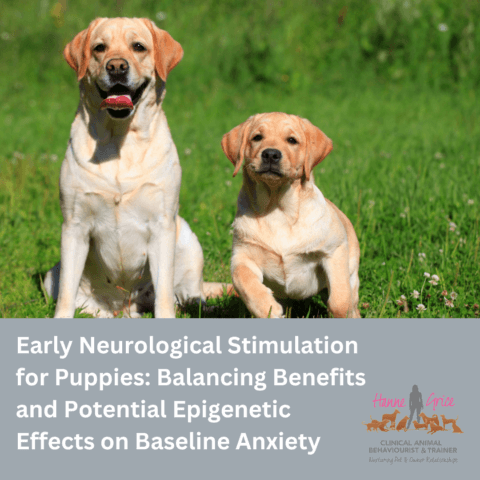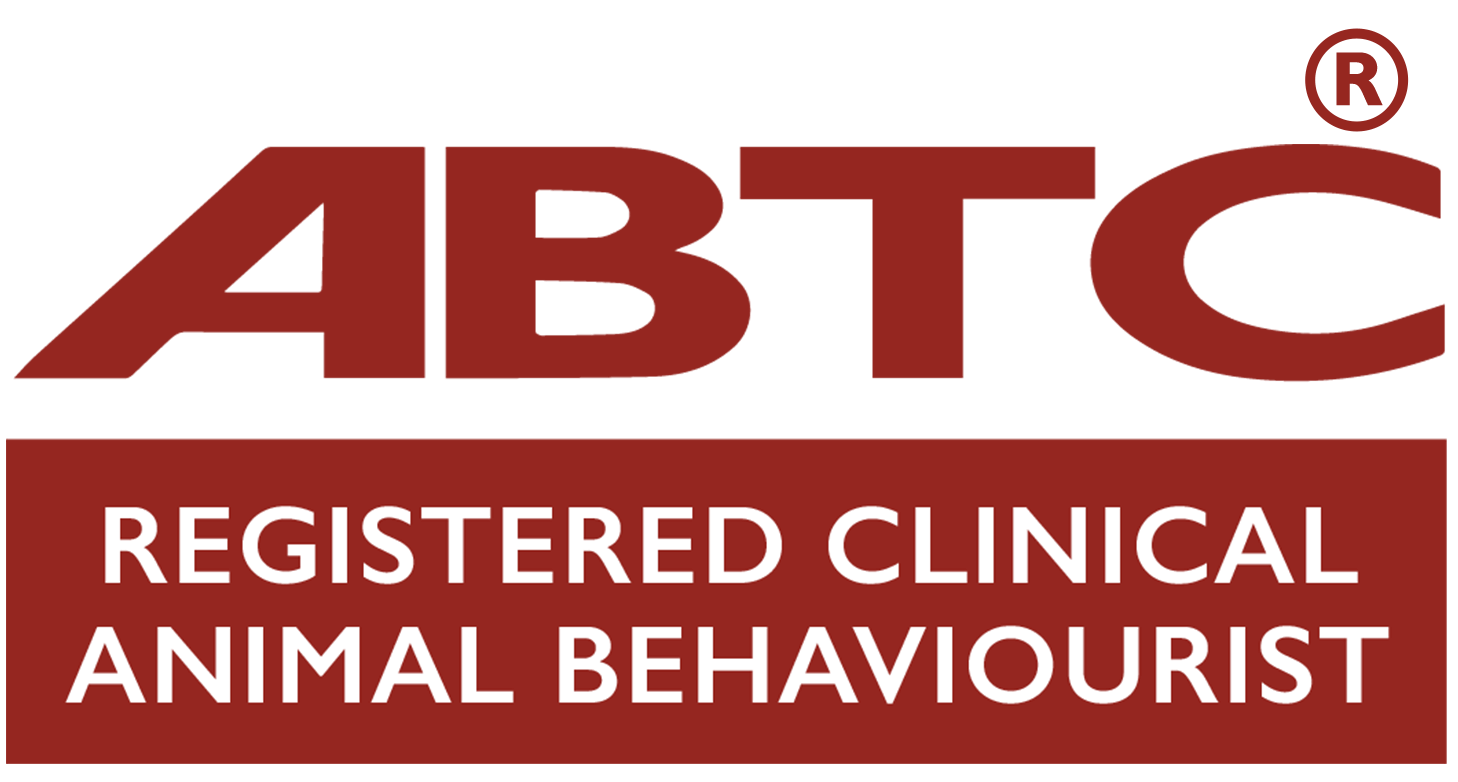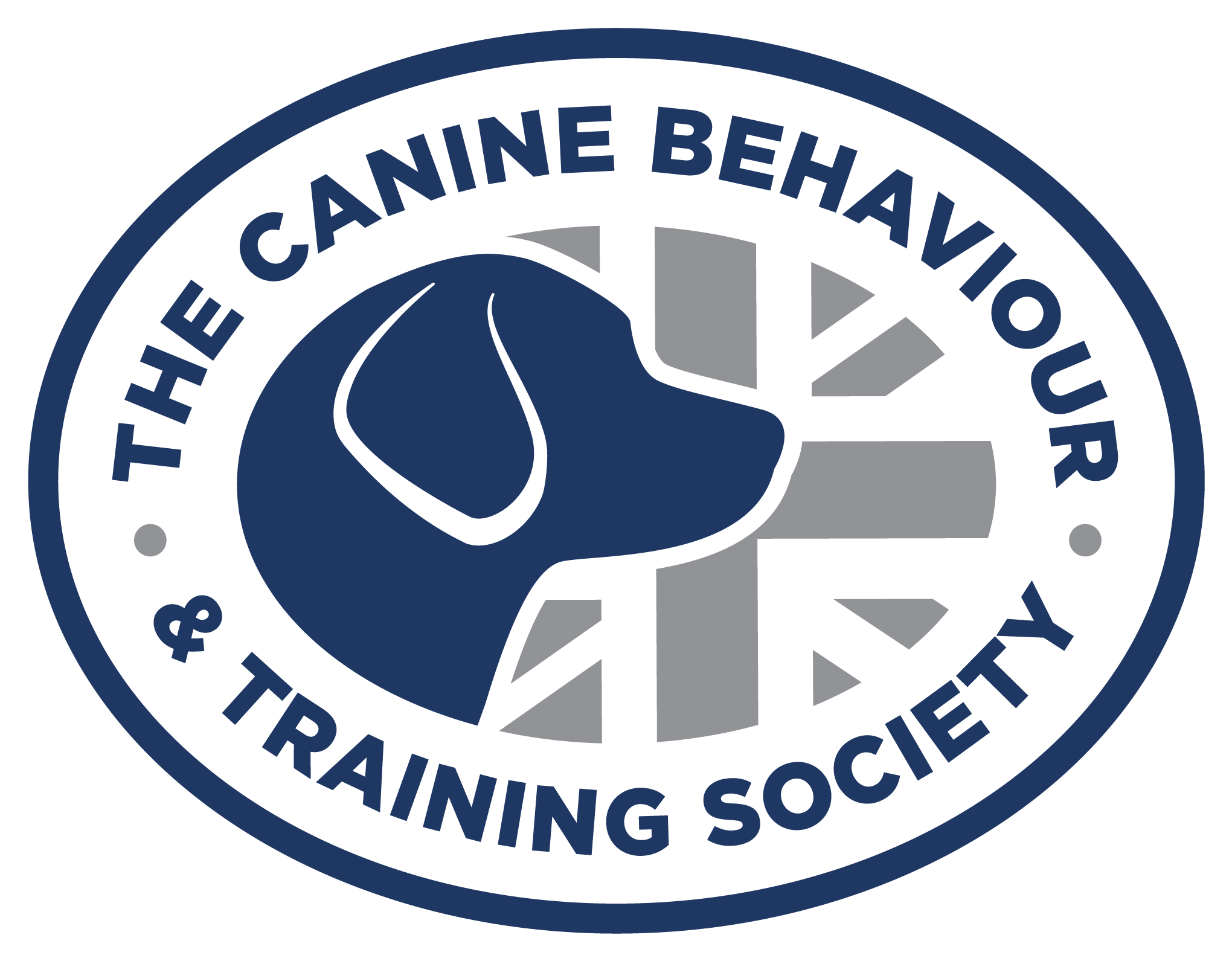
Early neurological stimulation (ENS) practices for puppies have recently gained popularity. These techniques aim to provide beneficial experiences during the neonatal period to promote healthy development and improve a puppy’s adaptability, resilience, and overall well-being. However, emerging data suggest that one of the ways breeders/caregivers might attempt to promote such adaptability is to separate puppies from their mothers during this critical period. However, such practices may induce negative epigenetic changes, leading to an increased baseline anxiety later in life. This article explores the benefits of ENS for puppies while considering the potential implications of separating them from their mothers during the neonatal period.
Early Neurological Stimulation (ENS) for Puppies
ENS involves a series of gentle, controlled exercises designed to provide puppies with a range of sensory experiences during the early stages of life. The primary goal of ENS is to enhance neurological development and improve the puppy’s ability to cope with stressors throughout its life.
ENS typically includes five key stimuli
- Tactile stimulation: Puppies are exposed to gentle touches and massages on various parts of their bodies. This helps them become accustomed to human touch and promotes healthy neural connections.
- Head positioning: Puppies are placed in different positions, including gently held upright, inverted, and laterally. These exercises aim to develop balance, coordination, and body awareness, working at the puppy’s individual pace.
- Thermal stimulation: Puppies are briefly exposed to different temperatures, such as warm or cool surfaces. This helps them adapt to varying environmental conditions.
- Early movement: Puppies are gently moved in a gently controlled manner to simulate different types of motions they may encounter in their daily lives. This helps develop their motor skills and spatial awareness.
- Novel sounds: Puppies are exposed to various sounds, such as soft to louder clapping or the ringing of bells and so on. This exposure helps them become more resilient to noise and prevents fear or anxiety-related behaviours.
Benefits of ENS for Puppies
Proponents of ENS argue that these practices offer several potential benefits to puppies:
- Enhanced neurological development: The carefully designed stimuli of ENS can promote the growth and connectivity of neural pathways, which may lead to improved cognitive abilities and learning capacity.
- Improved stress resilience: Early exposure to controlled stressors, such as separating the puppy from the mother for short periods of time, during ENS may help puppies develop adaptive coping mechanisms, making them more resilient to stress throughout their lives.
- Increased adaptability: By exposing puppies to various sensory experiences, ENS aims to enhance their adaptability and help them become more comfortable in new environments and situations.
- Better socialisation skills: ENS exercises often involve human touch, sound exposure, and movement, which can help puppies become more accepting of human interaction and improve their socialisation skills.
Potential Epigenetic Effects on Baseline Anxiety

While ENS practices are intended to be beneficial, recent studies have shown that separating mammals from their mothers during the neonatal period can lead to negative epigenetic changes. Epigenetic modifications are alterations in gene expression without changing the underlying DNA sequence, and they can be influenced by environmental factors.
Separation from the mother during this critical period has been linked to an increased risk of developing anxiety-related behaviours in mammals. This separation-induced anxiety may be a result of epigenetic changes that occur in response to the stress of maternal separation. These changes can alter the expression of genes involved in stress regulation, potentially leading to an elevated baseline anxiety phenotype later in life.
Finding a Balance
The potential negative epigenetic effects of separating puppies from their mothers during the neonatal period must be carefully considered alongside the benefits of ENS. While ENS can provide valuable experiences for puppies, it is crucial to ensure that these practices are carried out without compromising the well-being of the mother-infant bond, or create experiences that cause distress which may then manifest into anxiety, fear and or phobias as the puppy develops.
Key takeaways
Early neurological stimulation practices offer a range of potential benefits for puppies, including enhanced neurological development, stress resilience, adaptability, and socialisation skills. However, recent research suggests that separating mammals from their mothers during the neonatal period may lead to negative epigenetic changes associated with increased baseline anxiety. It is, therefore, important for breeders, trainers, owners and caregivers to find a balance between implementing ENS techniques whilst maintaining the crucial mother-infant bond and enabling positive experiences to ensure the overall well-being of puppies.
Further research is needed to better understand the long-term effects of ENS and mitigate potential epigenetic changes that could impact a puppy’s baseline anxiety.
References
- Gaudinier A, et al. (2020). Early Life Maternal Separation Stress Shapes Anxiety and Vulnerability to Compulsive Alcohol Drinking in Adulthood. eNeuro, 7(3). doi: 10.1523/ENEURO.0477-19.2020
- Lamprecht R. (2016). Theories and treatment of early life neglect in companion animals. Animal Frontiers, 6(3), 35-41. doi: 10.2527/af.2016.0310
- Scott JP, et al. (1958). Critical Periods in the Development of Social Behavior in Puppies. Psychosomatic Medicine, 20(1), 42-54. doi: 10.1097/00006842-195801000-00004
Learn more about our classes

Get Hanne's Book
Playing With Your Dog will help any dog owner work out the games that are best suited for their pet to play throughout his life, from puppyhood to old age. The book also shares some tricks for all ages, group activities, and recommended toys that dogs will enjoy.

























